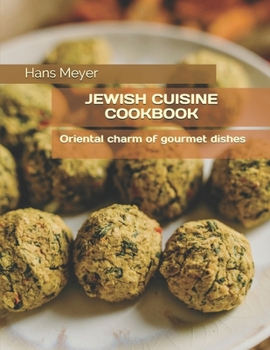Jewish Cuisine Cookbook: Оriental charm of gourmet dishes
The cuisine of Israel is considered to be a part of the Mediterranean cuisine, so olive oil, vegetables, fruits, fish, legumes are common here. However, Jewish cuisine has significant differences from the culinary traditions of the Mediterranean countries. First of all, because of Judaism and Arab influence, as well as the culture of the three largest sub-ethnic communities - Ashkenazi (Eastern European Jews), Sephardic (Spanish Jews), and Yemeni Jews. Let's talk about everything.Judaism requires observance of the laws of kosher. All products are divided into kosher (permitted) and tref (prohibited). Kosher products, in turn, are divided into meat, dairy, and parve (neutral). The joint use of meat and dairy products is strictly prohibited.It is allowed to eat only the meat of herbivores and at the same time artiodactyls (cows, sheep, goats, and others), and the slaughter of animals must take place strictly according to a ritual called shechita and exclusively by a specialist who has undergone a long training, passed the exam and received the right to perform shechita. Blood is also prohibited by kashrut, so the meat is soaked in water, sprinkled with coarse salt, and then washed to get rid of the blood.Fish is considered to be kosher if it spawns and has scales, fins, gills, and a spine. Caviar can only be eaten from kosher fish. For example, sturgeon and beluga are non-kosher fish, so black caviar is trefl; red (salmon) caviar is allowed. Various mollusks and crustaceans are tref.It is allowed to cook only domestic poultry: chickens, turkeys, ducks, geese. Eggs are edible only if they are from kosher birds.
Format:Paperback
Language:English
ISBN:B092XJP3L8
ISBN13:9798741013885
Release Date:April 2021
Publisher:Independently Published
Length:62 Pages
Weight:0.37 lbs.
Dimensions:0.1" x 8.5" x 11.0"
Customer Reviews
0 rating





